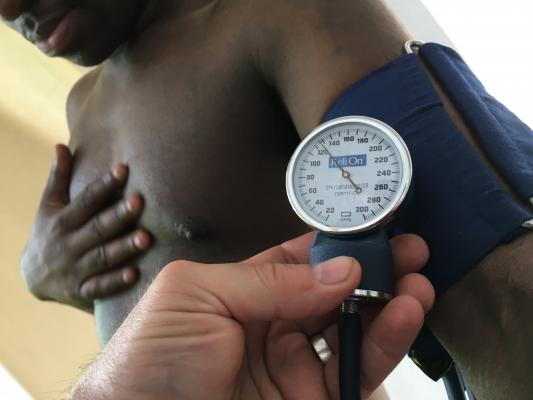
December 27, 2018 — African-American men participating in a blood pressure reduction program implemented in barbershops continued to have significant improvements in their blood pressure in a twelve-month follow-up study. The research was published in the American Heart Association journal Circulation.1
In the study led by Cedars-Sinai’s Smidt Heart Institute, 52 Los Angeles County barbershops were assigned to either a pharmacist-led intervention or an active control group. In the intervention group, barbers measured blood pressure and promoted follow-up with pharmacists who prescribed blood pressure medication under a collaborative practice agreement with study participants’ primary care providers. In the control group, barbers measured blood pressure and promoted follow-up only with primary care providers and lifestyle modification. At 6 months, the men in the intervention group had significant reductions in their blood pressure compared to those in the control group.
Read the article "Managing Blood Pressure in Barbershops Yields Substantial Improvements"
After six months, the intervention group continued the program, but had fewer in-person pharmacist visits to test if the intervention effect could be sustained safely for one year while reducing pharmacist travel time to and from barbershops.
When the study began, participants had an average systolic blood pressure of 152.4 mm Hg in the intervention group and 154.6 mm Hg in the control group. Systolic blood pressure is the top number in a blood pressure reading and it measures the pressure the blood exerts against the arteries while the heart is pumping.
At 12 months, the average systolic blood pressure fell by 28.6 mm Hg (to 123.8 mm Hg) in the intervention group and by 7.2 mm Hg (to 147.4 mm Hg) in the control group. The average reduction was 20.8 mm Hg greater with the intervention. These results are indistinguishable from the previously reported 6-month data, which were published in the New England Journal of Medicine.2
The principal investigator for the study was the late Ronald G. Victor, M.D., associate director of the Smidt Heart Institute. In 2010, Victor became the first to prove, through randomized, controlled testing, that barbershop-based health programs could potentially save hundreds of lives annually by helping African American men lower their blood pressure.
Watch the VIDEO: Reducing Hypertension Among African-Americans
For more information: www.ahajournals.org/journal/circ
References


 January 05, 2026
January 05, 2026 









